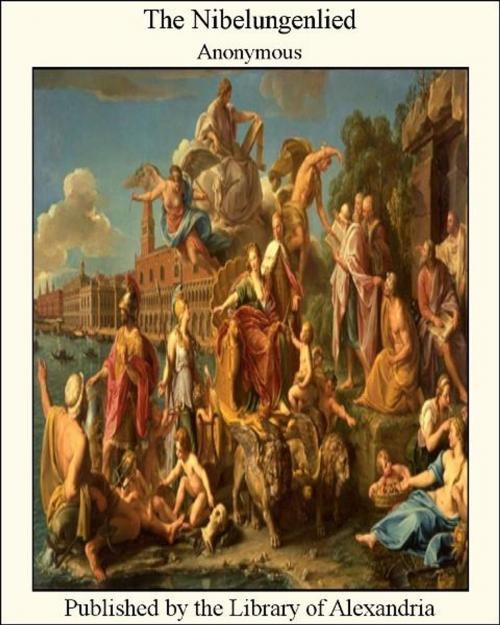| Author: | Anonymous | ISBN: | 9781465518750 |
| Publisher: | Library of Alexandria | Publication: | March 8, 2015 |
| Imprint: | Language: | English |
| Author: | Anonymous |
| ISBN: | 9781465518750 |
| Publisher: | Library of Alexandria |
| Publication: | March 8, 2015 |
| Imprint: | |
| Language: | English |
The "Nibelungenlied," as the great national epic of Germany, is not only one of the most important literary monuments that the German mind has produced in all periods of its history, but, in reality beyond this, it is also in its matter and its manner one of the world's great classics. It is this inherently because of the universal intelligibility of its story, for the broad human sympathy which must be felt with its characters and their motives of action, and for the sustained poetic treatment of the whole in the long poem. In all these respects the "Nibelungenlied," although German in its spirit and its environment, rises inevitably above the confines of nationality, and becomes, like Other works that are in a true sense great, by virtue of its universality an integral part of that cosmopolitan body that we call the literature of the world. Like the "Iliad," or any Other popular epic whatever, the "Nibelungenlied" is, however, first and foremost a picture of the national life and the national soul. Its characters in this way are, consequently, both fundamentally and of necessity a part of their own special environment into which each, according to his individuality, fits; and the manners and customs, the religion and ethics, are first of all essentially German in order to embody them and to motive their actions to the public for which the poem was originally intended. What we are given in the "Nibelungenlied" is primarily then, at least in its exterior, a picture of German life in the twelfth and thirteenth centuries. The customs are those of the courts and castles of the place and time, the men and women are the knights and ladies who inhabit them; and if the real mainsprings of motive and action sometimes go back beyond the poet's own day and generation for reasons that shall presently be told, the thoughts and feelings of the characters under his hand betray on the surface no trace of it.
The "Nibelungenlied," as the great national epic of Germany, is not only one of the most important literary monuments that the German mind has produced in all periods of its history, but, in reality beyond this, it is also in its matter and its manner one of the world's great classics. It is this inherently because of the universal intelligibility of its story, for the broad human sympathy which must be felt with its characters and their motives of action, and for the sustained poetic treatment of the whole in the long poem. In all these respects the "Nibelungenlied," although German in its spirit and its environment, rises inevitably above the confines of nationality, and becomes, like Other works that are in a true sense great, by virtue of its universality an integral part of that cosmopolitan body that we call the literature of the world. Like the "Iliad," or any Other popular epic whatever, the "Nibelungenlied" is, however, first and foremost a picture of the national life and the national soul. Its characters in this way are, consequently, both fundamentally and of necessity a part of their own special environment into which each, according to his individuality, fits; and the manners and customs, the religion and ethics, are first of all essentially German in order to embody them and to motive their actions to the public for which the poem was originally intended. What we are given in the "Nibelungenlied" is primarily then, at least in its exterior, a picture of German life in the twelfth and thirteenth centuries. The customs are those of the courts and castles of the place and time, the men and women are the knights and ladies who inhabit them; and if the real mainsprings of motive and action sometimes go back beyond the poet's own day and generation for reasons that shall presently be told, the thoughts and feelings of the characters under his hand betray on the surface no trace of it.















